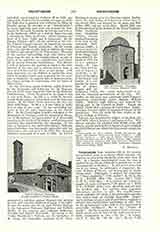

Voluntarism (Lat. voluntas, will) in the modern metaphysical sense is a theory which explains the universe as emanating ultimately from some form of will. In a broader psychological sense the term is applied to any theory which gives prominence to will (in opposition to intellect). In this latter sense, but not in the former, the philosophy of Augustine, Anselm, William of Occam, and Scotus may be styled Voluntarism. Philosophy is defined by Augustine as “Amor sapientiae” (“De ordine”, I, 11, n. 32; P.L., XXXII, 993; “De civitate Dei”, VIII, ii; P.L., XLI, 225). It is wisdom, but it must be sought pie, caste, et diligenter (“De quant. an.”, XIV; P.L., XXXII, 1049); with the whole soul, not with the intellect only. Yet nowhere does Augustine subordinate intellect to will. The neo-Platonism which underlies the whole of his philosophic speculation makes such an attitude impossible. Augustine’s doctrine of grace and of providence supposes a definite and characteristic psychology of will. But in the metaphysical order God is ever conceived as essentially intelligence. He is the “Father of Truth“. On this is based a proof of God‘s existence, which occurs several times in his works and is peculiarly Augustinian in tone (“De div.”, Q. lxxxiii, 14; P.L., XL, 38; “De lib. orb.”, II, nn. 7-33; P.L., XXXII, 1243-63; “Confess.”, VII, c. 10, n. 16; P.L., XXXII, 742; “Soliloq.”, I, i, n. 2; P.L., XXXII, 870; cf. “De civ. Dei”, VIII, iv; P.L., XLI, 228, 229). In God Augustine places “the intelligible world” of the Platonists, and the Divine concursus is in a special way required by human thought. God is “the sun of the soul” (“Gen. ad lit.” XII, xxxi, n. 59; P.L., XXXIV, 479; “De pecc. mer.”, I, 25, n. 38; P.L., XLIV, 130; cf. “Soliloq.”, I, 8; P.L., XXXII, 877), Himself performing the functions which Scholastics ascribe to the intellectus agens. Faith, too, with Augustine as with Anselm, involves intelligence. For both the principle intelligo ut credam is no less true than the principle credo ut intelligam. (“In Ps. exviii”, serm. xviii, n. 3; P.L., XXXVII, 1552; serm. xliii, c. vii, n. 9; P.L., XXXVIII, 258.)
The philosophy of Scotus is more distinctly voluntaristic. On the freedom of the will he is particularly clear and emphatic. He insists that the will itself, and nothing but the will, is the total cause of its volition. It is not determined by another, but determines itself contingenter, not inevitabiliter, to one of the alternatives that are before it (II Sent., dist. xxv; see also “ult comm.”, ibid). This is freedom, an attribute which is essential to all higher forms of will, and consequently is not suspended or annulled in the beatific vision (IV Sent., dist. xlix, Q. 4). Because the will holds sway over all other faculties and again because to it pertains that charity which is the greatest of the virtues, will is a more noble attribute of man than is intelligence. Will supposes intelligence, is posterior generatione, and therefore more perfect (IV Sent., dist. xlix, 4 “quaestio lateralis”).
Kant’s “practical reason”, in that it passes beyond the ‘phenomenal world to which “pure reason” is confined, is superior to the latter. Practical reason, however, is not will: rather it is an intelligence which is moved by will; and in any case it is a human faculty, not a faculty of the absolute. Fichte is the first to conceive will or deed-action (Thathandlung) as the ultimate and incomprehensible source of all being. He is followed by Schelling, who says that will is Ursein: there is no other being than it, and of it alone are predicable the attributes usually predicated of God. Schopenhauer holds will to be prior to intelligence both in the metaphysical and the physical order. It appears in nature first as a vague self-consciousness mingled with sympathy. Ideas come later, as differences are emphasized and organization developed. But throughout the will holds sway, and in its repose Schopenhauer places his ideal. Nietzsche transforms “the will to live” into “the will to power”. His philosophy breathes at once tyranny and revolt: tyranny against the weak in body and in mind; revolt against the supremacy of the State, of the Church, and of convention.
Pragmatism (q.v.) is an extreme form of psycho-logical Voluntarism; and with it is closely connected Humanism—a wider theory, in which the function of the will in the “making of truth” is extended to the making of reality. The Voluntarism of Absolutists, such as Fichte, Schelling, and Schopenhauer, confuses the abstract concept of being, as activity in general, with the more determinate, psychological concept of will, as rational self-determination. The Pragmatist identifies intelligence and will with action.
LESLIE J. WALKER

